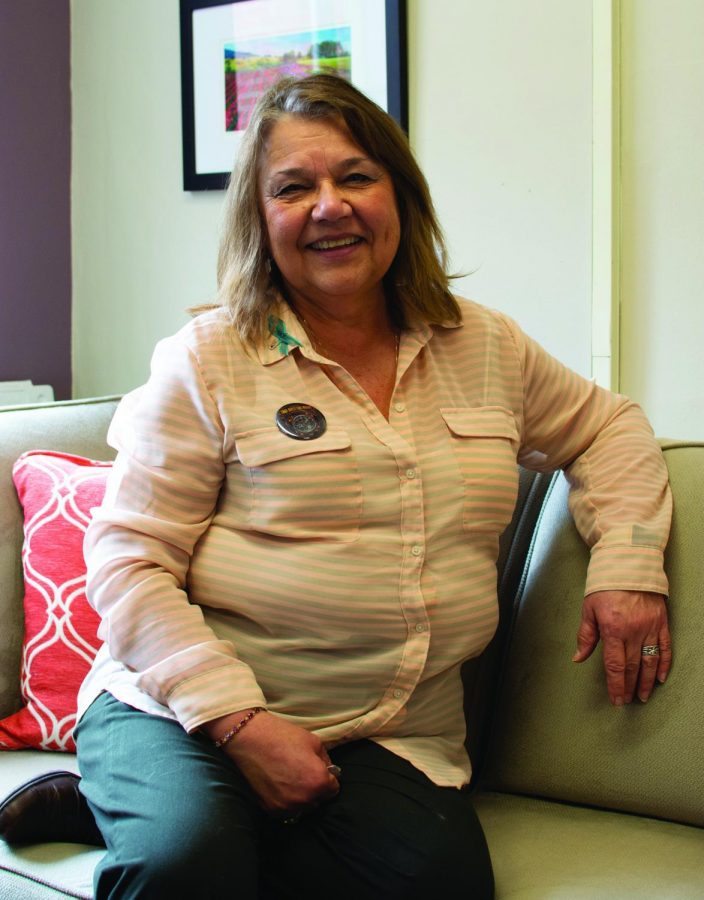Resources provide support, assistance to survivors
April 16, 2018
Survivor Advocacy and Resource Center
For Oregon State University students, faculty and staff who have experienced sexual assault, violence in their dating relationship or are being stalked, the Survivor Advocacy and Resource Center provides safe and confidential support, advocacy and assistance in their overall recovery process.
SARC is dedicated to acting as the first point of contact for any survivor, said Judy Neighbours, the SARC director. The individuals at SARC help determine the best course of action based on individual survivors’ needs.
“We help them feel safer by understanding what happened to them and how they have been impacted,” Neighbours said in an email. “We are there to help them with what they feel is important to them and to make their own choices about what they need.”
Advocates within SARC can aid students with difficulties involving their academics, such as an inability to complete assignments or courses, Neighbours said. Additionally, they can inform survivors of the impact and effects of reporting incidents to the university or to any law enforcement, accompany survivors to any meetings as requested and refer them to other resources.
“We provide survivors the support and safety they need so that they can then decide how they want to move forward or identify what they might need to help them move forward,” Neighbours said via email. “Our main task is to give them back their control and empower them to do what they feel would help.”
Neighbours said SARC also has a support group dedicated to survivors that meets within their office located in Plageman Hall, room 311 every Tuesday from 3:30-5 p.m. This support group is open to all at OSU who are survivors of gender-based violence and provides them with connections to other individuals who have dealt with similar incidents so that they do not feel alone.
“We won’t tell survivors what to do,” Neighbours said. “We will listen to them, believe them and support them in their choices. They usually know what will help and we can just facilitate that sometimes.”
Center Against Rape and Domestic Violence
For individuals who have dealt with any form of sexual assault or domestic violence, the Center Against Rape and Domestic Violence can offer 24/7 advocacy and support for any assistance that is needed.
Located at 2208 SW 3rd St. in Corvallis, CARDV has served the Linn-Benton community, including students and faculty from Oregon State University for nearly 37 years.
The leading service through CARDV is the Crisis and Support Hotline, a non-judgemental and confidential phone number individuals in need of verbal assistance can utilize, said Letetia Wilson, the CARDV executive director. Those who use the hotline are not required to provide their name or any further information that they do not wish to share.
“Typically people say, ‘I got your number, I don’t know why I’m calling you,’ and we say, ‘That’s fine, just tell us a little about what’s going on and how we can help you,’ or “Tell us a little bit about your situation and we can see how we can help you,’” Wilson said. “So it’s really meant to be non-judgemental and from a peer standpoint that we never tell people what to do.”
Wilson said that CARDV additionally has shelters that are available for all within the community to use as needed for any length of time.
“We have two shelters in the community where we shelter individuals, families, people that need a safe place to go after they’ve experienced domestic violence or sexual assault,” Wilson said. “That could be 30 days or longer, whatever they need to become self sufficient is our goal.”
Within the area that CARDV covers, they work in conjunction with eight different law enforcement agencies to provide legal advocacy, such as assistance with the criminal justice system and protection orders, Wilson said.
“They call us and we can go to people’s houses right after a domestic violence has happened, we can meet with them in a public place, they can come to us, they can come out to the shelter, whatever they need,” Wilson said. “That’s going to be the theme that you hear throughout all of our services—that we are just here to meet survivors’ needs. Whatever they need, we’re here for that. That’s in person, over the phone, whatever they need.”
Employees of CARDV will also respond to requests from Sarah’s Place, a medical center based out of the Albany General Hospital, dedicated to the well-being of sexual assault and domestic violence survivors, Wilson said. The center is a stand-alone entity within the hospital with two exam rooms and only gives access to individuals who are involved in the process of helping survivors, ultimately in order to ensure confidentiality.
“(When they are at Sarah’s Place), that might be the only time where someone is by themselves in the room with a doctor that they can actually talk about what’s going on in their house,” Wilson said. “We hope to develop better relationships with medical professionals so we can be there in that moment that if that’s the only time to talk about the violence in your home, we’re hoping we can be there.”
Wilson said all CARDV employees that work directly with clients, referred to as advocates, receive 160-hour, special on-the-job training in order to prepare them to aid the needs of survivors within the community.
“I know it’s super scary to reach out. People reach out to their friends, family members, people they know, way before they come to us because if they don’t know us, they don’t know that we are just normal people like them that have specialized training and can help them talk about their relationship, help them reach safety,” Wilson said. “I would just remind them that this is peer support and that we are just their peers, here to help them.”
























































































































